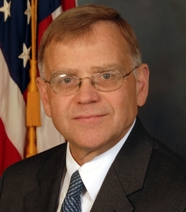With the upcoming regulations right around the corner, the good news is that FDA is still on track to meet the FSMA deadlines for August (preventive controls for human and animal food). But as industry looks to the future of FSMA and its implementation, resources and funding will be a challenge. Michael Taylor, deputy commissioner for foods and veterinary medicine at FDA, continued this message (which he declared several months ago) at the 2015 IAFP conference in Portland, OR.
“We’ve been given a brand new mandate by Congress to do things we haven’t done before,” said Taylor, as he emphasized that FDA will be in a do-more-with-less resource-challenged state. FDA would need, over the five years following the enactment of FSMA, $580 million, said Taylor. Over the first five years, FDA has received about $162 million (through 2015). “2016 is the absolute crunch year for FSMA funding,” he said. President Obama’s budget request for FY2016 would provide $109.5 million.
The issue is that there simply isn’t enough funding to get it all done, or as Taylor put it, not enough money to “maintain momentum towards comprehensive implementation of the FSMA vision.” As a result of the funding limitations, Taylor said that FDA will be making “hard choices” and will be forced to prioritize the funding that it receives. He indicated that the agency will focus on preventive controls implementation first. But this leaves a potential for disruption due to the investments needed for implementing the produce safety rule and building a strong system for imports, which may pose the biggest challenge over the next decade, Taylor warned. While trying to remain positive, the deputy commissioner also maintained that he wanted to be transparent about the situation.
FSMA will give FDA the ability and technology to act in real-time when issues occur, but it will also require new skills and training, as well as a shift in culture. In November, Taylor will be the opening plenary speaker for the Food Safety Consortium Conference and will surely have more insights, as industry will be entering the implementation phase.



